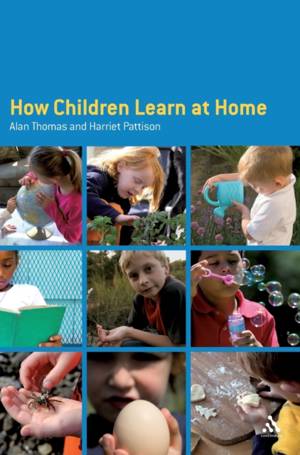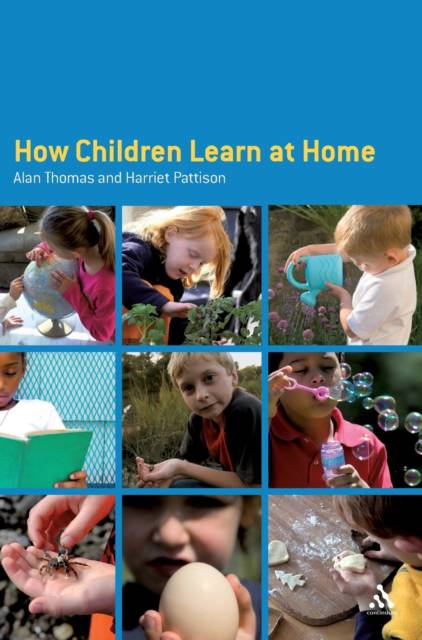
Bedankt voor het vertrouwen het afgelopen jaar! Om jou te bedanken bieden we GRATIS verzending (in België) aan op alles gedurende de hele maand januari.
- Afhalen na 1 uur in een winkel met voorraad
- In januari gratis thuislevering in België
- Ruim aanbod met 7 miljoen producten
Bedankt voor het vertrouwen het afgelopen jaar! Om jou te bedanken bieden we GRATIS verzending (in België) aan op alles gedurende de hele maand januari.
- Afhalen na 1 uur in een winkel met voorraad
- In januari gratis thuislevering in België
- Ruim aanbod met 7 miljoen producten
Zoeken
Omschrijving
In his Educating Children at Home, Alan Thomas found that many home educating families chose or gravitated towards an informal style of education, radically different from that found in schools. Such learning, also described as unschooling, natural or autonomous, takes place without most of the features considered essential for learning in school. At home there is no curriculum or sequential teaching, nor are there any lessons, textbooks, requirements for written work, practice exercises, marking or testing. But how can children who learn in this way actually achieve an education on a par with what schools offer?
In this new research, Alan Thomas and Harriet Pattison seek to explain the efficacy of this alternative pedagogy through the experiences of families who have chosen to educate their children informally. Based on interviews and extended examples of learning at home the authors explore:
- the scope for informal learning within children's everyday lives
- the informal acquisition of literacy and numeracy
- the role of parents and others in informal learning
- how children proactively develop their own learning agendas.
Their investigation provides not only an insight into the powerful and effective nature of informal learning but also presents some fundamental challenges to many of the assumptions underpinning educational theory.
This book will be of interest to education practitioners, researchers and all parents, whether their children are in or out of school, offering as it does fascinating insights into the nature of children's learning.
In this new research, Alan Thomas and Harriet Pattison seek to explain the efficacy of this alternative pedagogy through the experiences of families who have chosen to educate their children informally. Based on interviews and extended examples of learning at home the authors explore:
- the scope for informal learning within children's everyday lives
- the informal acquisition of literacy and numeracy
- the role of parents and others in informal learning
- how children proactively develop their own learning agendas.
Their investigation provides not only an insight into the powerful and effective nature of informal learning but also presents some fundamental challenges to many of the assumptions underpinning educational theory.
This book will be of interest to education practitioners, researchers and all parents, whether their children are in or out of school, offering as it does fascinating insights into the nature of children's learning.
Specificaties
Betrokkenen
- Auteur(s):
- Uitgeverij:
Inhoud
- Aantal bladzijden:
- 168
- Taal:
- Engels
Eigenschappen
- Productcode (EAN):
- 9780826479983
- Verschijningsdatum:
- 1/03/2008
- Uitvoering:
- Hardcover
- Formaat:
- Ongenaaid / garenloos gebonden
- Afmetingen:
- 168 mm x 250 mm
- Gewicht:
- 430 g

Alleen bij Standaard Boekhandel
+ 644 punten op je klantenkaart van Standaard Boekhandel
Beoordelingen
We publiceren alleen reviews die voldoen aan de voorwaarden voor reviews. Bekijk onze voorwaarden voor reviews.









